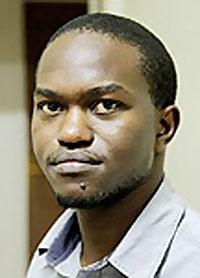It has been a week of media bullying since those bombs went off at the end of the Boston Marathon. Suddenly, everything else in the world seemed not to matter and we all had to follow and understand the Boston bombings. Understanding meant that we were supposed to be very sad about the event even from miles away.


It has been a week of media bullying since those bombs went off at the end of the Boston Marathon. Suddenly, everything else in the world seemed not to matter and we all had to follow and understand the Boston bombings. Understanding meant that we were supposed to be very sad about the event even from miles away.
I was thus not so surprised that many East Africans send lots of prayers to Boston via their Twitter and Facebook accounts forgetting about the over 50 people who had been killed by bombs in Mogadishu. They did not want to know about the people killed by floods and mudslides in Kenya and Rwanda.
The Boston Marathon bombings in a way said a lot about East Africans. You see, the bombs were set to go off almost three hours after the top athletes had crossed the finishing line. Anyone who knows about marathons these days will tell you that by that time, many East Africans in the race had already finished the race and even hit the showers.
In other words, the bombers knew that killing East Africans (Kenyans and Ethiopians mainly) would not make as much news compared to targeting the people at the tail end of the race who are often residents of the host city who take part in the marathon with the sole ambition of finishing.
Away from Boston, Tanzania was thrown into a moment of grief when the Queen of Taarab music, Bi Kidude passed away. This came at a time when some were remembering a year since the death of the Tanzanian film star, Steven Kanumba who was killed around the same time last year.
Bi Kidude, whose real name was Fatuma binti Baraka, received the prestigious WOMEX music award for her contribution to music in Arabic and Swahili and culture in Zanzibar. At the time of her death she was thought to be about 90 years old but often found time to grace the stage and sing.
It was a fitting farewell for the old lady when President Jakaya Kikwete himself turned up for her funeral in Zanzibar. Also in attendance were the leaders of Zanzibar, Pres. Ali Mohamed Shein and his two vice presidents.
I must admit that I have a soft spot for Taarab music even though I hardly understand what they sing about most of the time. I love the feel-good feeling that comes with the music that makes you want to join the circle at the beach and dance away.
It is commendable that Tanzania’s TV channels always make an effort to promote this kind of music. A few weeks back I met a lady who confessed to always watching a Taarab music show on Channel 10 while at work at Pension Plaza in Kigali. May Bi Kidude rest in eternal peace.
My radar on Burundi came up with a mixture of news and as is often the case, the bad news seemed to be beating the good news off the table. There was this interesting story about two African students who created an anti-Malaria soap using local herbs and were awarded a cash prize of $25,000.
The mosquito repelling soap was developed by Moctar Dembele who hails from Burkina Faso and Gerard Niyondiko, a Burundian. Knowing how much malaria is a problem in Africa, this development is nothing but good news.
However, the genius in the soap invention did not make as much of a buzz as the new media law that Burundi passed requiring journalists to have a degree to practice but more shockingly they will be expected to reveal their news sources. Now stories like this are exactly what Human Rights Watch and all the pessimistic analysts on Africa will scavenge for. And yes, it made more rounds on the news cycle.
Now lastly, I think many of you by now know about Rwanda’s Vision 2020 or about Kenya’s Vision 2030. Well, it turns out Uganda has just embarked on an ambitious (they are usually ambitious programmes) Vision 2040. This is interesting because a few years back the country was talking about Vision 2025 under the late minister, Salim Bachou.
Should we therefore look at this new and improved vision as the real thing or take it as a smokescreen aimed at prevalent problems that made the Vision 2025 impossibility? I think all we have to do is simply make an effort to stay alive to see what happens in 2040 and to play our role.
Blog: www.ssenyonga.wordpress.com
Twitter: @ssojo81


